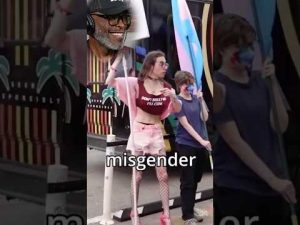The recent uproar over a controversial video from Donald Trump has become the latest example of how American political discourse is losing its sense of humor. Critics from Democratic circles have labeled the video, featuring doctored images with a sombrero and mustache, as racist and offensive. Yet, as this debate rages on, it highlights a broader cultural shift where humor is often lost in translation amidst political tensions.
The media’s reaction has been predictable and somewhat tiresome—branding the video as “depraved” or “filthy.” Such hyperbole seems unwarranted given the context of the piece, indicating a preference to label rather than engage with the content. This reaction reveals an ongoing pattern among many left-leaning media outlets: when faced with something they dislike or disagree with, they often resort to accusations without fostering genuine discourse.
In contrast, humor has always been a vital component of American culture. The ability to laugh at oneself, or at the playful jabs thrown in good spirit, has turned countless heated discussions into moments of light-hearted relief. However, it seems some are not willing to embrace this aspect of American tradition, instead choosing to take offense. As shown historically, both sides have indulged in humor directed at their opponents, yet now, humor is weaponized as a political tool depending on the target.
Interestingly, this situation presents a stark reminder of how political figures could benefit from taking themselves a little less seriously. Instances like JD Vance’s defense of public jests about others illustrate how humor can disarm and even win over critics. By embracing the joke rather than resisting it, public figures can demonstrate resilience and relatability, which often resonate with the wider public.
Ultimately, engaging in humor does not negate the serious discourse needed in political matters. Instead, it can serve as a refreshing supplement to the discussion, allowing for a more multifaceted exploration of issues. While it’s essential to maintain sensitivity toward potentially offensive content, inflating every piece of comedy into a scandal only detracts from the real issues at hand.
In a time when America confronts numerous challenges, perhaps it’s worth remembering that a little laughter can go a long way. Encouraging a culture where differences are discussed openly and humorously, rather than suppressed, might just pave the way for more constructive political dialogue.







